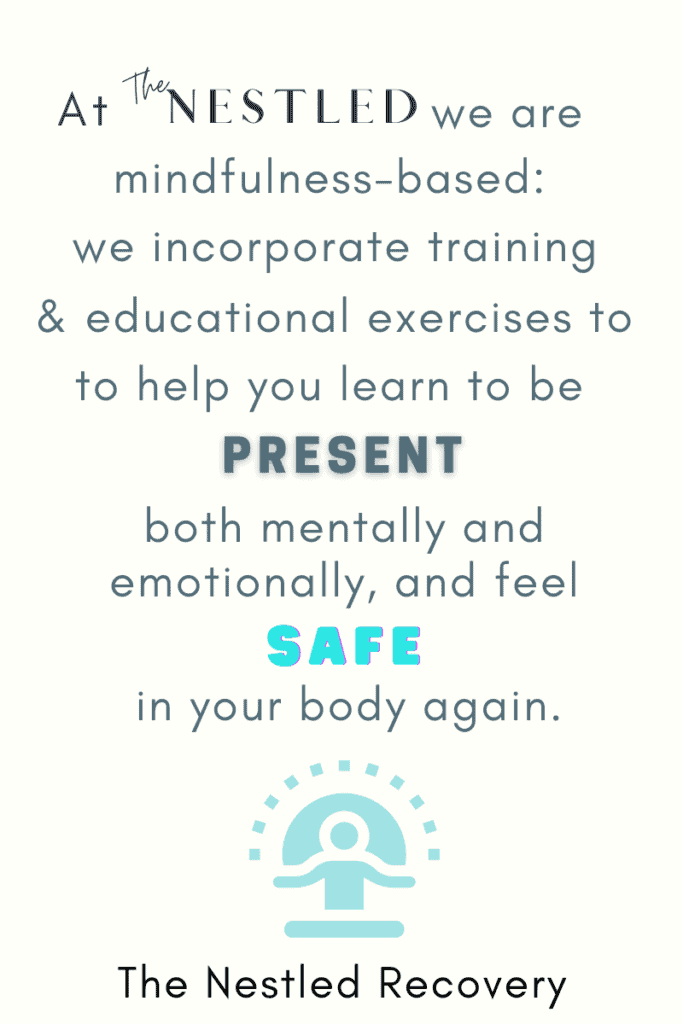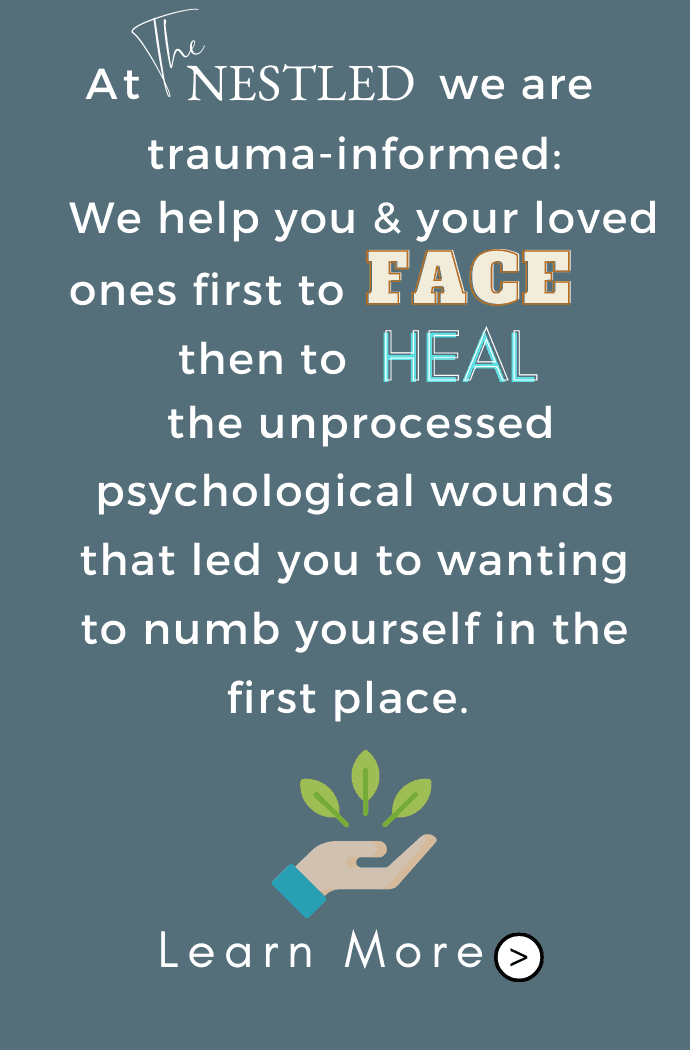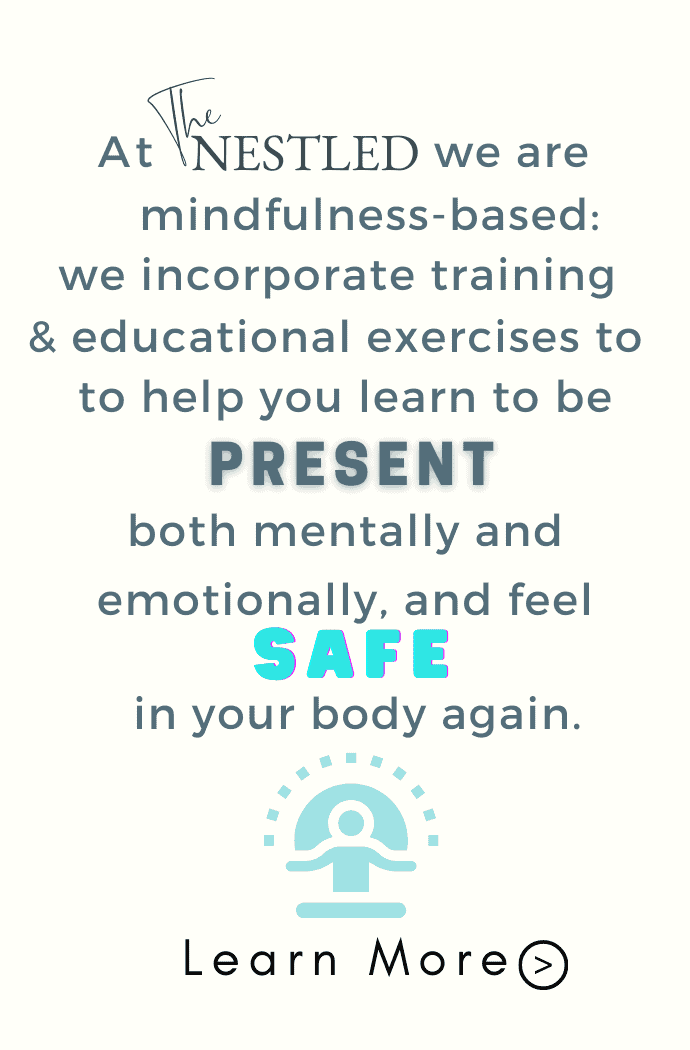Practicing mindfulness is a pillar to becoming well and recovering from substance use disorder treatment. If you are struggling with trauma, co-occurring disorders, behavioral issues, or addiction, being mindful and learning to interpret and address emotional triggers as they occur is important. Mindfulness-based care recognizes what has happened and teaches you how to process and react in real-time as you experience life and the healing process.
What Is The Practice Of Mindfulness In Relation To Substance Use Disorder?
Mindfulness-based interventions have seen a rapid rise in popularity, both in terms of use and research. There are also certain populations that benefit very well from mindfulness-based treatment, specifically, individuals that have suffered or suffer from ptsd. Mindfulness-based cognitive therapy (MBCT), mindfulness therapy is a holistic approach to behavioral and cognitive readjustments with the goal outcome being better adjustment and overall wellness. Mindfulness-based care addresses unhelpful thought patterns and emotional reactions that you have to certain ideas, suggestions, and situations that can worsen addictive triggers and habits. Mindfulness therapies can help address these issues without necessarily using a structured therapy schedule. The concept can also be applied to stress reduction techniques that encourage a level head when there is heightened pressure or temptation to use an addictive substance.
Related Articles:
What Are The Benefits of Mindfulness?
Mindfulness has many benefits, some of which include reducing stress, improving mood, promoting well-being, and increasing communication skills. For people in recovery, mindfulness can provide a sense of calm and peace during times of stress and temptation. It can also help to build self-esteem and self-compassion.
Mindfulness can be practiced in many different ways, such as through meditation, yoga, breathing exercises, journaling, or simply paying attention to your thoughts and feelings throughout the day. The key is to find a way that works for you and that you can commit to doing it on a regular basis.
Practicing mindfulness can make a big impact on your recovery journey. It provides many benefits.
Mindfulness can:
- help relieve stress
- treat heart disease
- lower blood pressure
- reduce chronic pain
- improve sleep
- alleviate gastrointestinal difficulties
- mindfulness-based therapy can also help improve mental health
Reduce Frequencies of Depression
Many people seeking treatment for a substance use problem also have mental health issues like depression. Mindfulness can help you overcome this mental state without dangerous drugs or risky behavior.
Reduce Relapse
Substance use disorders are difficult to overcome because your mental health has become dependent on the substance. Your higher reasoning becomes impaired. Those suffering from a substance use disorder find that mindfulness and meditation gradually reshape the formation of their brain and thus their thinking.
Reduce Stress
Substance use disorders often cause you to experience immense stress when not consuming the drug. Mindfulness-based stress reduction allows your mind to strengthen the connection between your prefrontal cortex and other areas of your brain to improve logical thinking and avoid bad decisions. Thus, this treatment can help with smoking cessation or the usage of other substances.
Separating Thoughts from Reality
Your thoughts are just that: thoughts. You are not your thoughts, and thoughts are not reality. Practicing research-supported mindfulness evaluates self-critical thoughts and reframes them as something that can be thrown out instead of latched onto.
Increased Compassion
Compassion is helpful when dealing with a substance use disorder for a few reasons. First of all, you are able to connect with others who are also going through treatment more easily. Secondly, you are able to have more compassion for yourself when practicing mindfulness.
Practice Mindfulness-Based Relapse Prevention
If done correctly with behavioral therapy and counseling, mindfulness can help reduce relapses. Mindfulness-Based Relapse Prevention combines a range of therapies and modern science to prevent reoccurring episodes of anxiety, depression, physical pain, and other symptoms caused by addictive behaviors.
This mindfulness-based cognitive therapy includes:
- Trigger and cravings awareness
- Meditation and body scan techniques
- Detecting when you are on autopilot
- Daily life mindfulness practice and improved mental health
- Mindfulness for high-risk situations that cause relapse
- Be aware of automatic pilot and relapse dangers
- Awareness of triggers and cravings
- Accepting the present moment and responding appropriately
- Ability to understand how thoughts affect chances of relapse
- Mindfulness-based stress reduction
- Changing exercise, lifestyle, and habits to promote healthy, drug-free living
- Having social support in place to continue your mindfulness
- Social support and keeping your mindfulness practice going
The research is clear. Practicing mindfulness and overcoming addiction go hand in hand. If you or your loved one are suffering from substance abuse or mental health issues, it’s time to seek treatment.
Reach out to our friendly team at The Nestled Recovery to learn more about our groundbreaking and effective mindfulness training. Our proven approach helps you use meditation, mindfulness exercises, and traditional treatment to manage stress, eliminate drug use, and improve your everyday life.
Mindfulness Based Treatment In Las Vegas
If you are struggling with addiction, know that you are not alone. There is help available, and mindfulness is one tool that can assist you in your journey toward recovery. Give mindfulness a try… Read more about our substance specific treatment protocols here:









